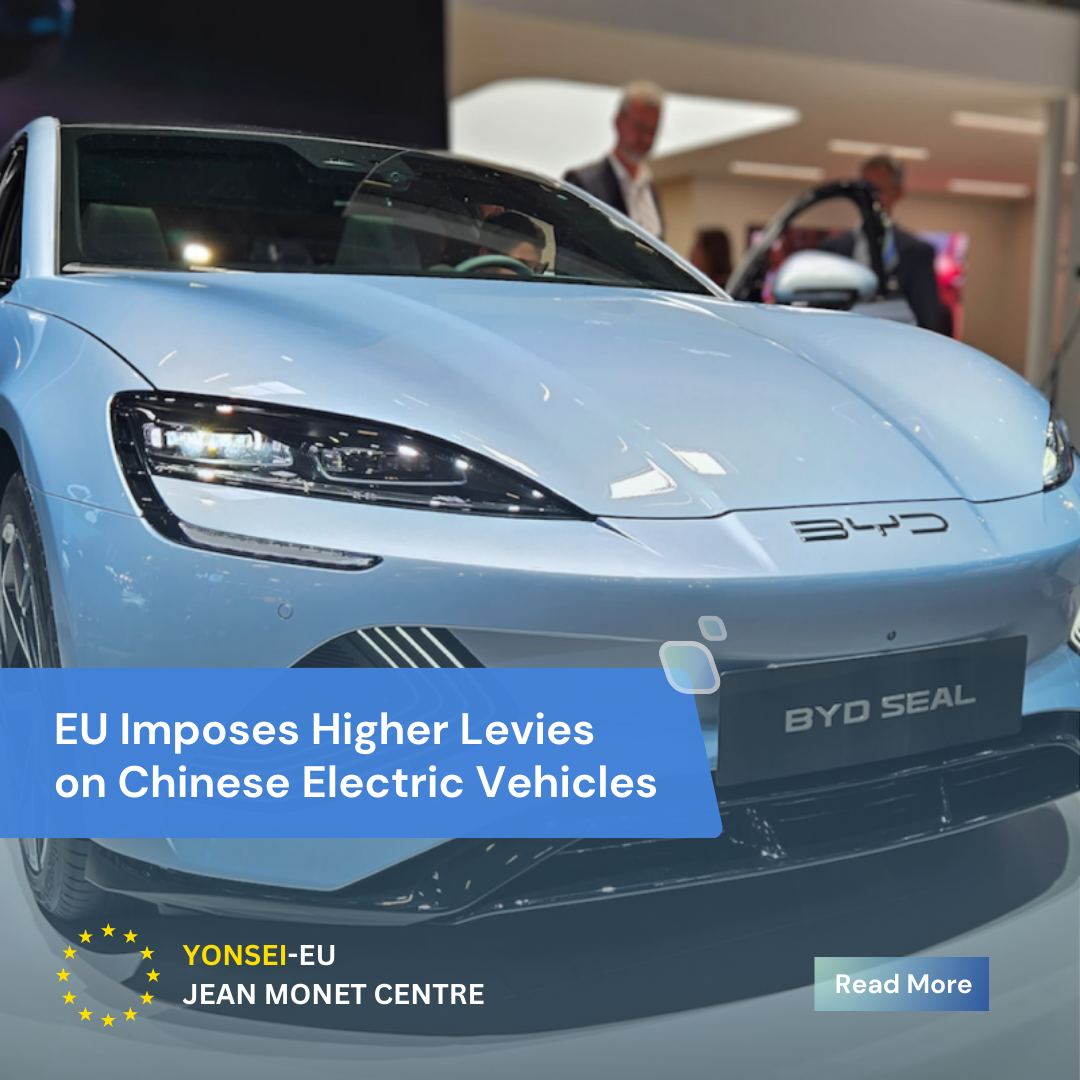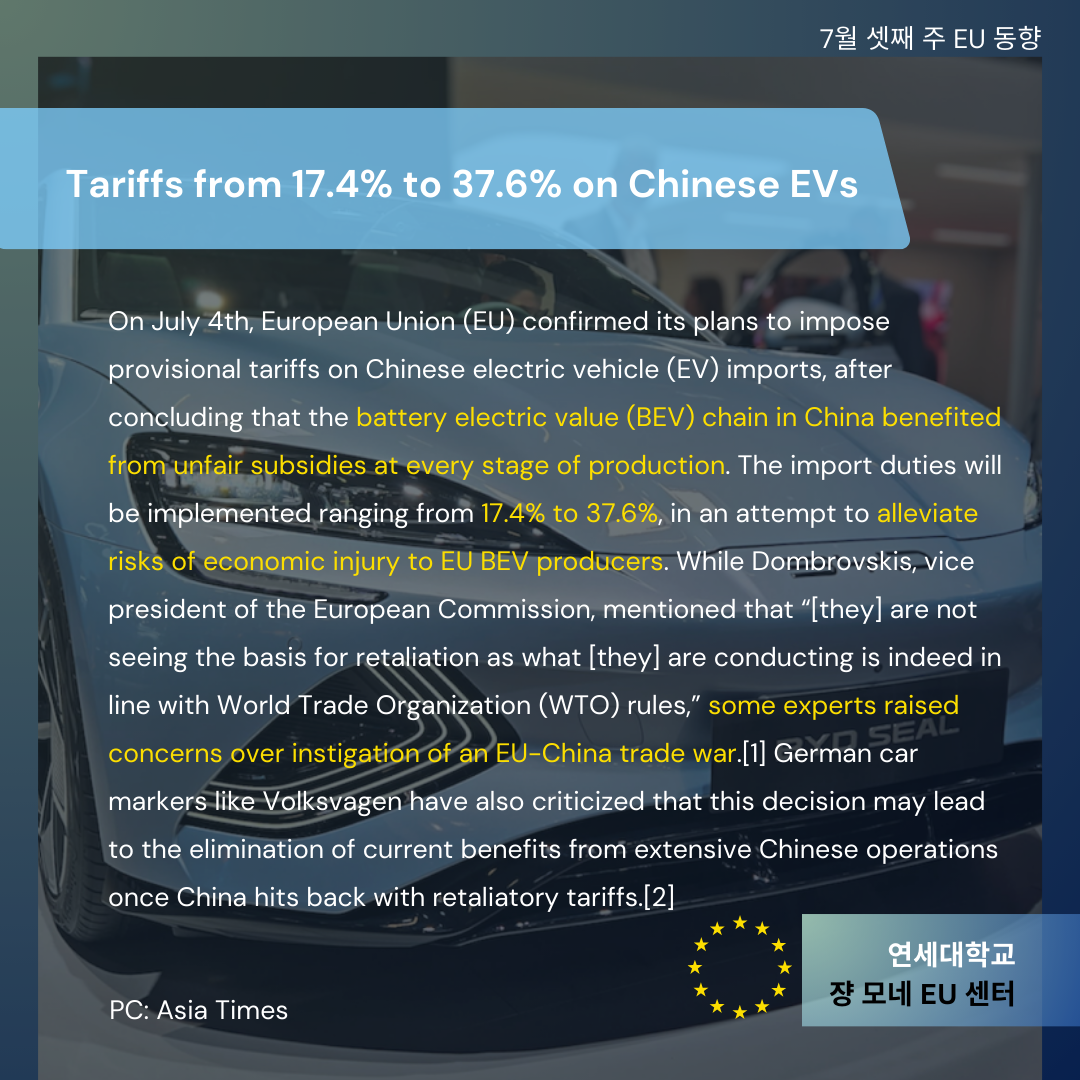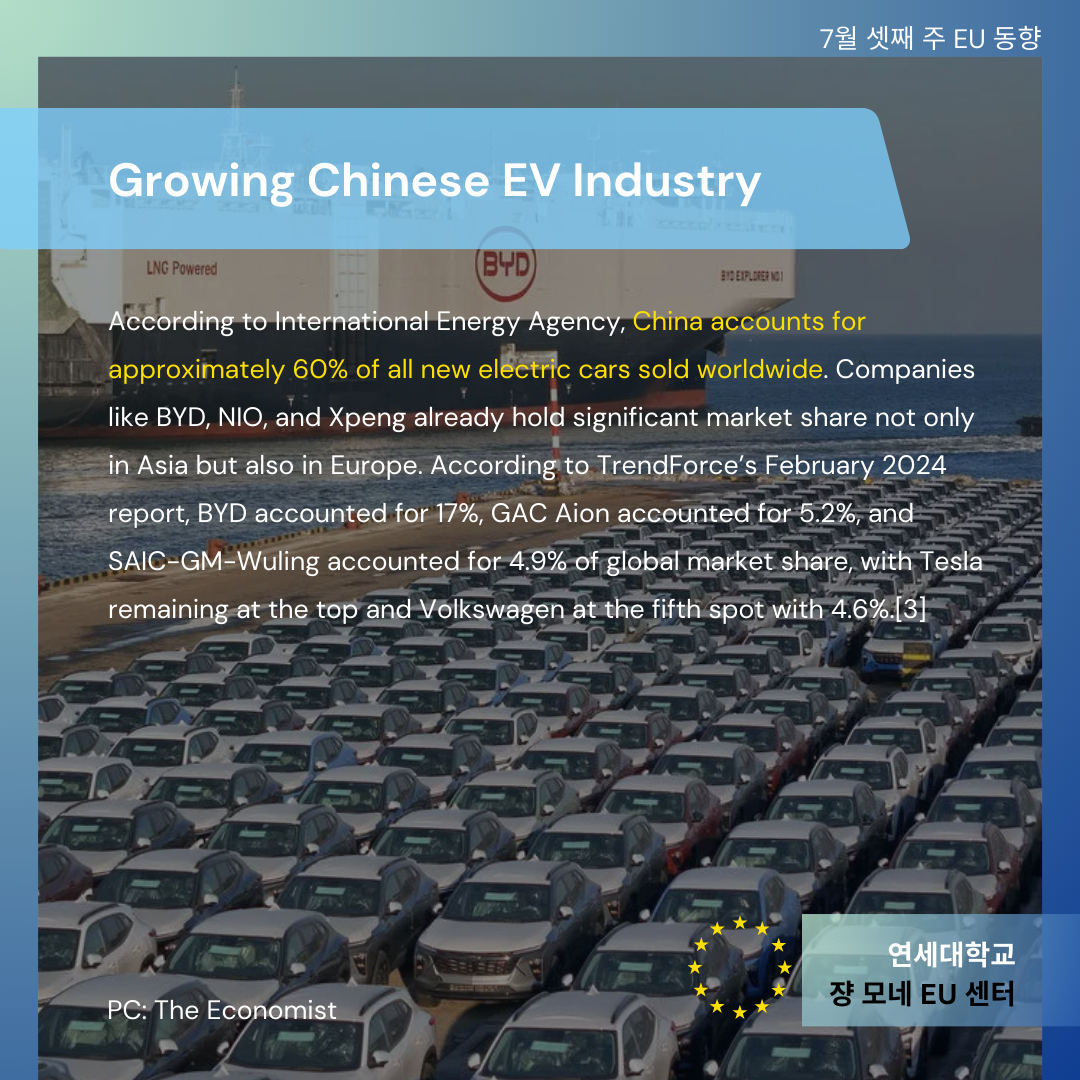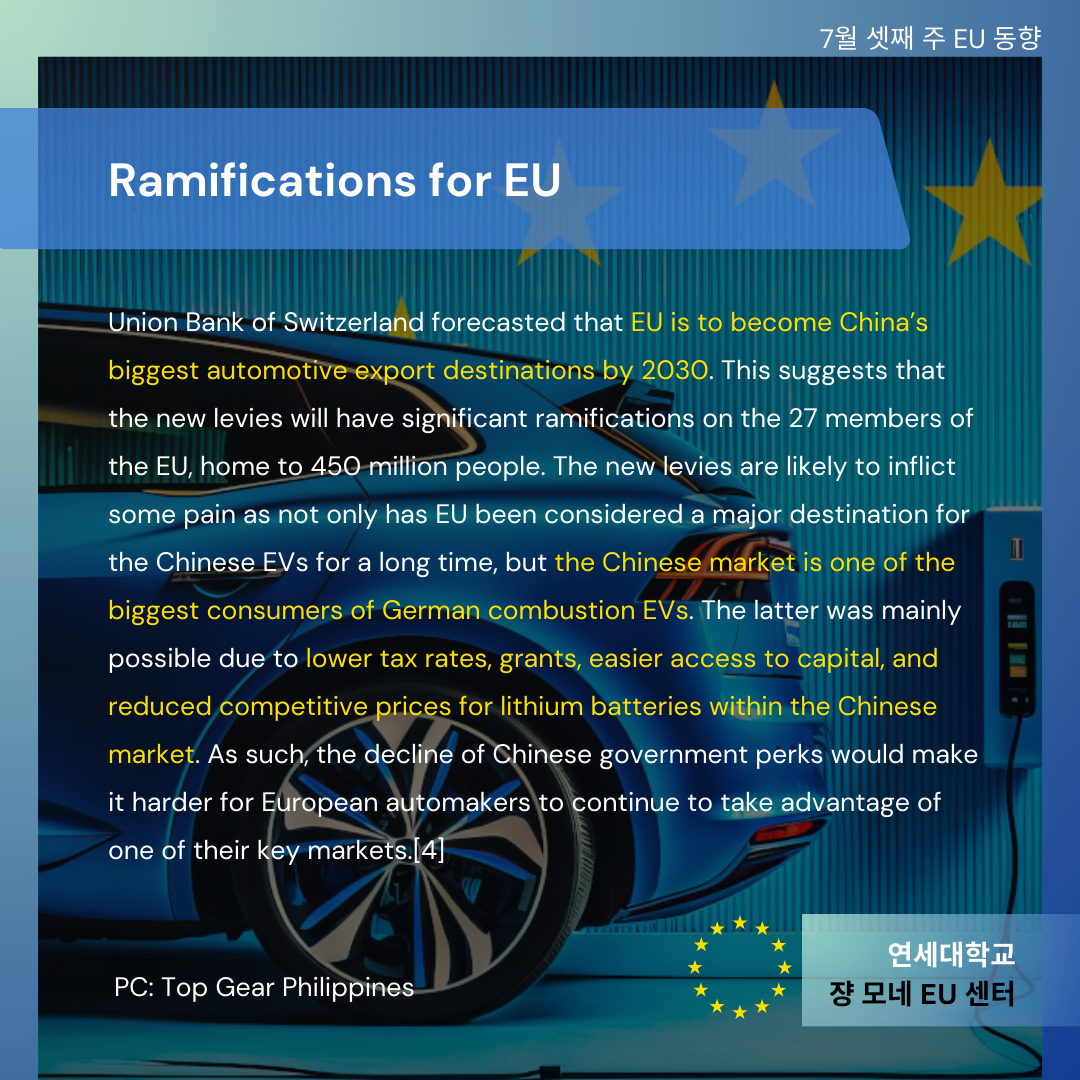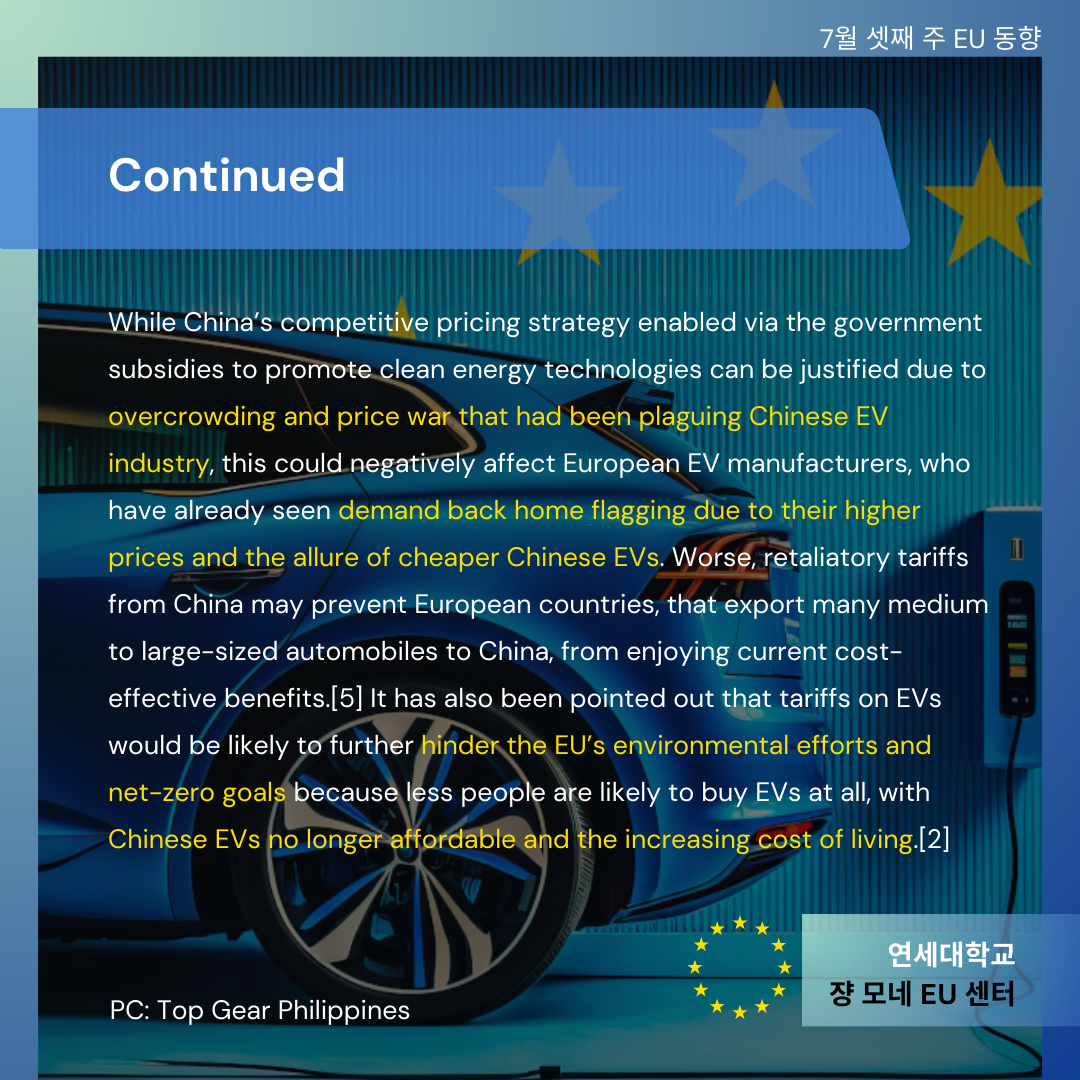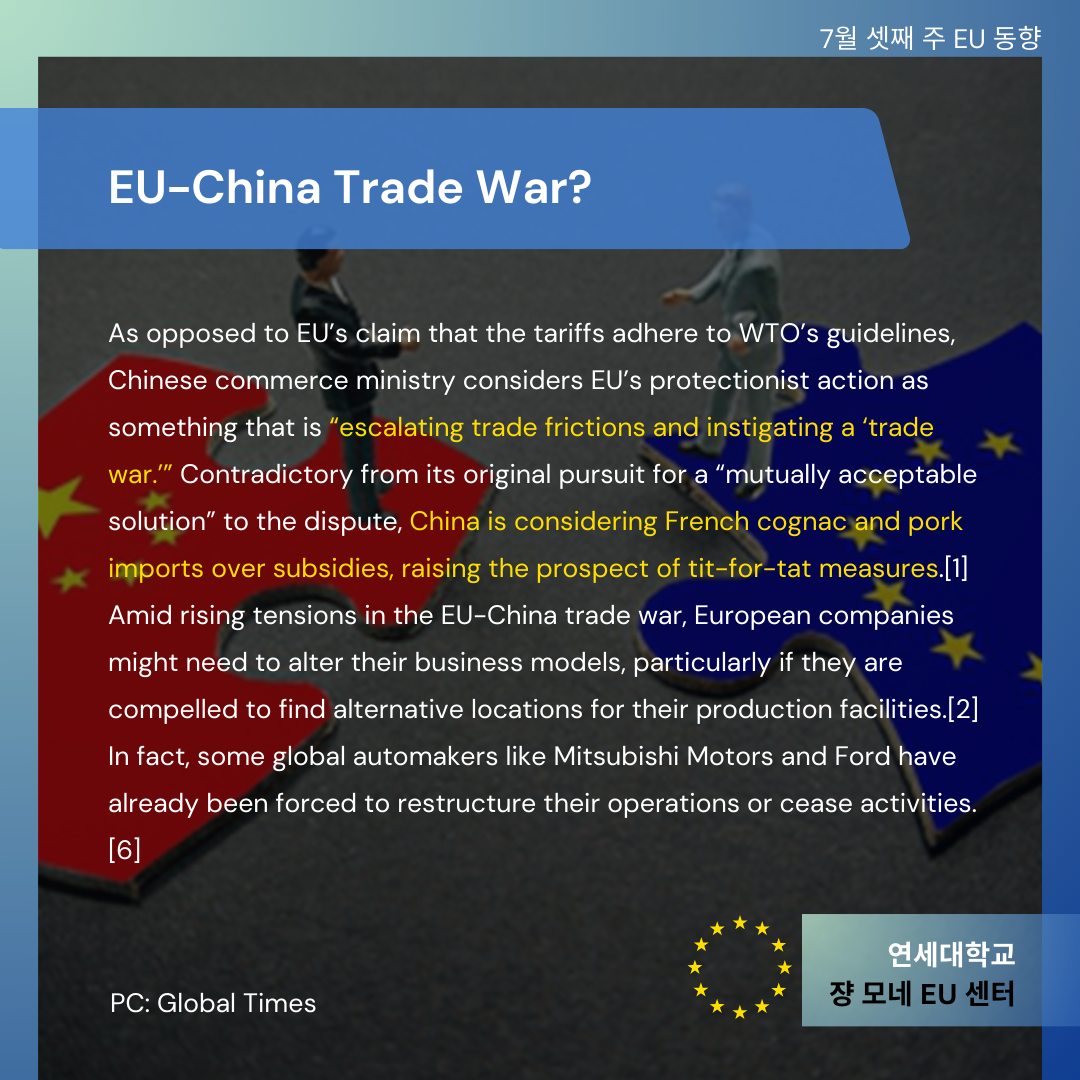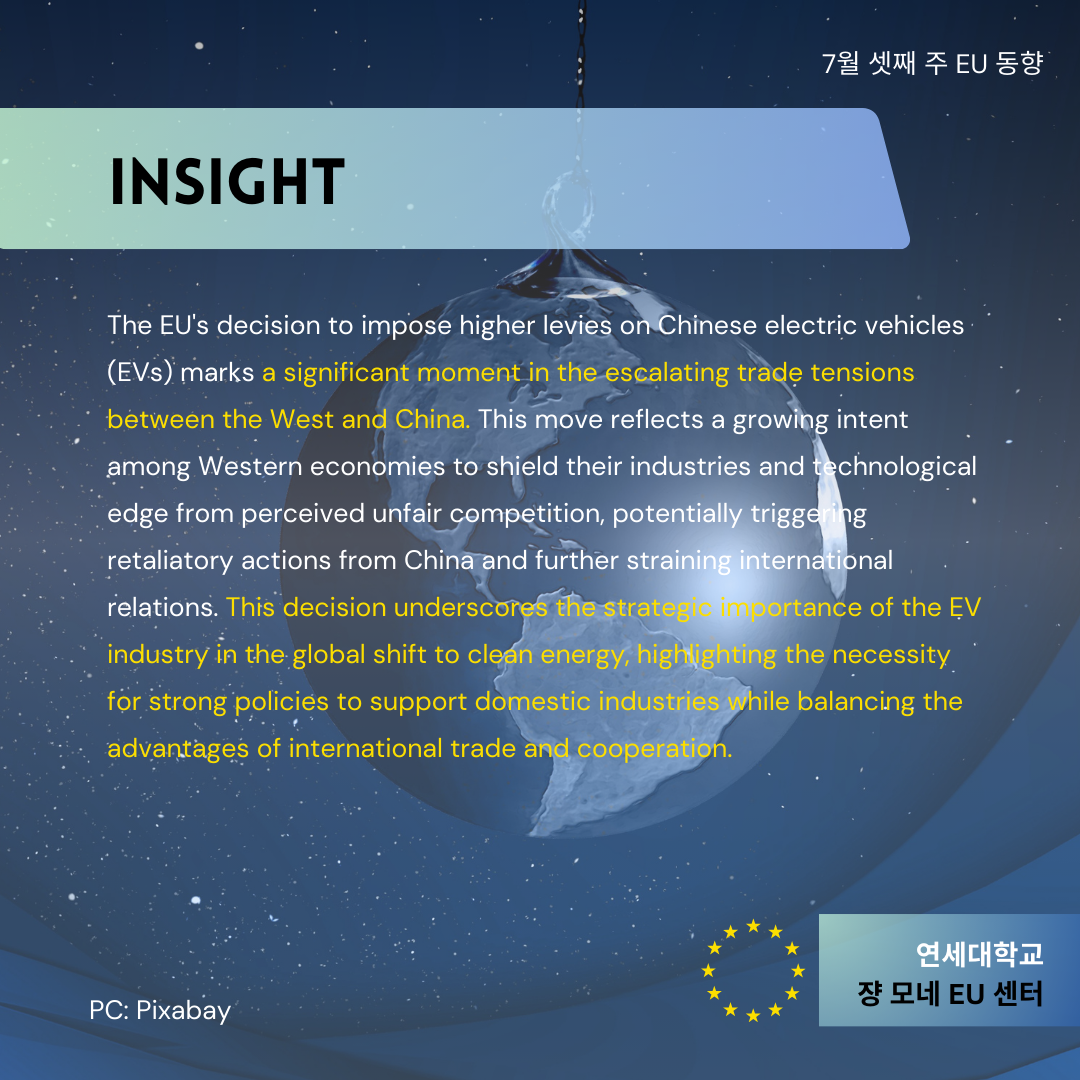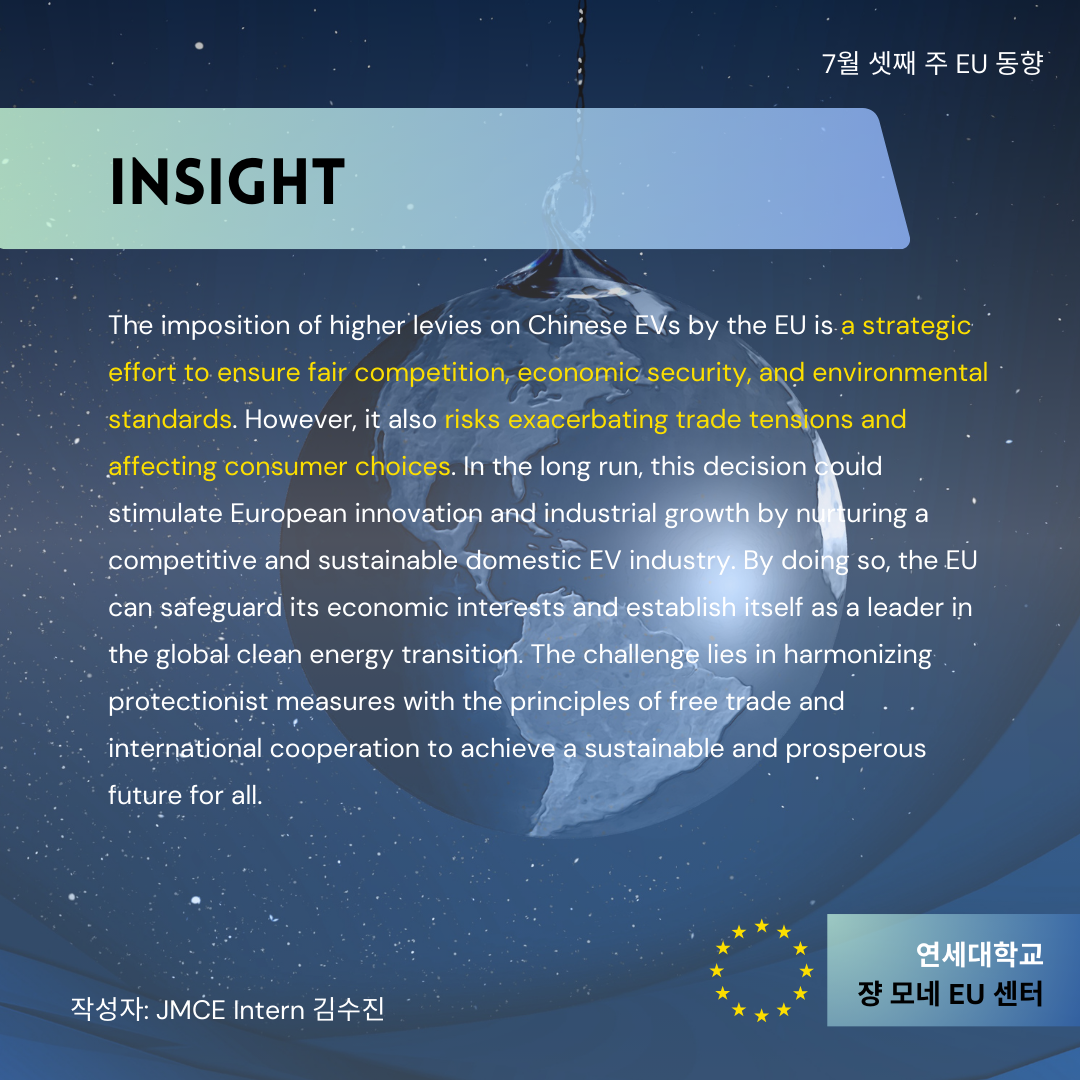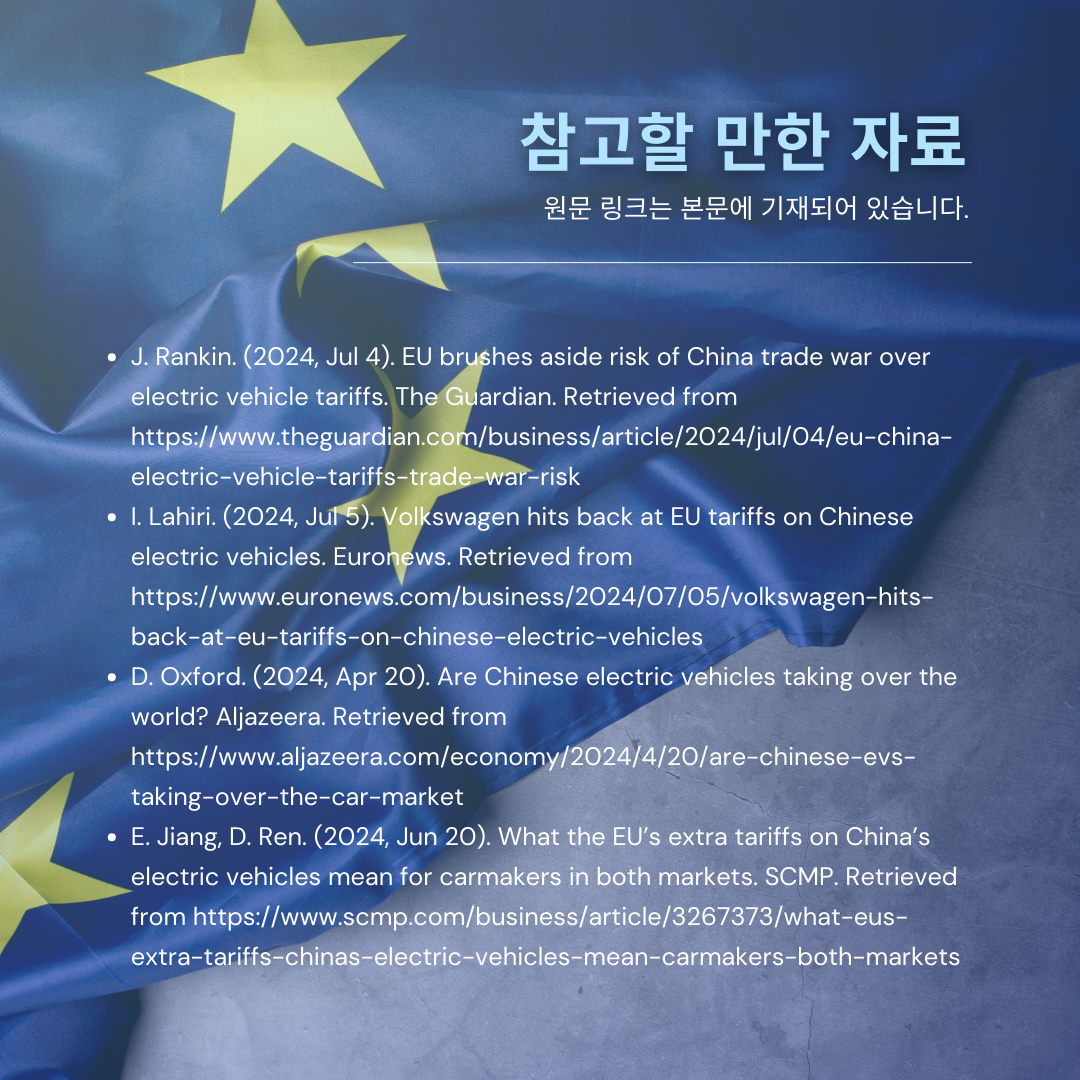YONSEI-EU Jean Monnet Centre
EU와 ASIA를 연결하는 네트워크 허브
EU 동향
EU 관련 최신 현안 이슈 및 동향을 분석하고 시사점을 제시합니다.
EU Imposes Higher Levies on Chinese Electric Vehicles
On July 4th, European Union (EU) confirmed its plans to impose provisional tariffs on Chinese electric vehicle (EV) imports to the bloc, after concluding that the battery electric value (BEV) chain in China benefited from unfair subsidies at every stage of production. The import duties will be implemented up to 38% from the existing 10%, in an attempt to alleviate risks of economic injury to EU BEV producers. While Dombrovskis, vice president of the European Commission, mentioned that “[they] are not seeing the basis for retaliation as what [they] are conducting is indeed in line with World Trade Organization (WTO) rules,” some experts raised concerns over instigation of an EU-China trade war.[1] This decision has also garnered criticisms, especially from German car markers like Volksvagen, that may no longer be able to enjoy benefits from extensive Chinese operations once China hits back with retaliatory tariffs.[2] International attention has been given as to whether EU can maneuver the difficulties with China to maintain international order, while enhancing Europe’s car industry in the long-term.
China has one of the fastest growing EV markets in the world, accounting for approximately 60% of all new electric cars sold worldwide, according to International Energy Agency. In particular, companies like BYD, NIO, and Xpeng already hold significant market share not only in Asia but also in Europe. According to TrendForce’s February 2024 report, BYD accounted for 17%, GAC Aion accounted for 5.2%, and SAIC-GM-Wuling accounted for 4.9% of global market share, with Tesla remaining at the top and Volkswagen at the fifth spot with 4.6%.[3] Furthermore, Union Bank of Switzerland forecasted that EU is to become China’s biggest automotive export destinations by 2030, which underlines the degree of significance the new levies will have on the 27 members of the EU, home to 450 million people. This contrasts with the impact the quadrupling of tariffs by the White House last month will have in the United States, wherein the impact is likely to be minimal since few Chinese-produced EVs are sold. On the other hand, the EU’s new levies are likely to inflict some pain as not only has the bloc been considered a major destination for the Chinese EVs for a long time, but the Chinese market is one of the biggest consumers of German combustion EVs. The latter was mainly possible due to lower tax rates, grants, easier access to capital, and reduced competitive prices for lithium batteries within the Chinese market. As such, the decline of Chinese government perks would make it harder for European automakers to continue to take advantage of one of their key markets.[4]
EU’s extra levies are the result of the two parties (China and EU) failing to reach an agreement regarding the competitive pricing strategy enabled via the Chinese government subsidies to promote clean energy technologies. While China’s such action can be justified due to overcrowding and price war that had been plaguing Chinese EV industry, this could negatively affect European EV manufacturers, who have already seen demand back home flagging due to their higher prices and the allure of cheaper Chinese EVs. Worse, retaliatory tariffs from China may prevent European countries, that export many medium to large-sized automobiles to China, from enjoying current cost-effective benefits.[5] It has also been pointed out that tariffs on EVs would be likely to further hinder the EU’s environmental efforts and net-zero goals because less people are likely to buy EVs at all, with Chinese EVs no longer affordable and the increasing cost of living.[2]
State support for Chinese EV industry has surmounted to concerning levels of imbalances, leading to artificially cheap products and unemployment. Chinese commerce ministry, however, considers EU’s protectionist action as something that is “escalating trade frictions and instigating a ‘trade war.’” Contradictory from its original pursuit for a “mutually acceptable solution” to the dispute, China is considering French cognac and pork imports over subsidies, raising the prospect of tit-for-tat measures.[1] Amid rising tensions in the EU-China trade war, European companies might need to alter their business models, particularly if they are compelled to find alternative locations for their production facilities.[2] In fact, some global automakers have already been forced to restructure their operations or cease activities. In October, Mitsubishi Motors declared it would halt production at its joint venture in China. Additionally, Honda, Hyundai, and Ford have undertaken measures such as layoffs and selling factories to reduce costs, as reported in stock exchange filings and state media reports.[6]
The EU's decision to impose higher levies on Chinese electric vehicles (EVs) marks a significant moment in the escalating trade tensions between the West and China. This move reflects a growing intent among Western economies to shield their industries and technological edge from perceived unfair competition, potentially triggering retaliatory actions from China and further straining international relations. This decision underscores the strategic importance of the EV industry in the global shift to clean energy, highlighting the necessity for strong policies to support domestic industries while balancing the advantages of international trade and cooperation.
The imposition of higher levies on Chinese EVs by the EU is a strategic effort to ensure fair competition, economic security, and environmental standards. However, it also risks exacerbating trade tensions and affecting consumer choices. In the long run, this decision could stimulate European innovation and industrial growth by nurturing a competitive and sustainable domestic EV industry. By doing so, the EU can safeguard its economic interests and establish itself as a leader in the global clean energy transition. The challenge lies in harmonizing protectionist measures with the principles of free trade and international cooperation to achieve a sustainable and prosperous future for all.

[1] J. Rankin. (2024, Jul 4). EU brushes aside risk of China trade war over electric vehicle tariffs. The Guardian. Retrieved from https://www.theguardian.com/business/article/2024/jul/04/eu-china-electric-vehicle-tariffs-trade-war-risk
[2] I. Lahiri. (2024, Jul 5). Volkswagen hits back at EU tariffs on Chinese electric vehicles. Euronews. Retrieved from https://www.euronews.com/business/2024/07/05/volkswagen-hits-back-at-eu-tariffs-on-chinese-electric-vehicles
[3] D. Oxford. (2024, Apr 20). Are Chinese electric vehicles taking over the world? Aljazeera. Retrieved from https://www.aljazeera.com/economy/2024/4/20/are-chinese-evs-taking-over-the-car-market
[4] E. Jiang, D. Ren. (2024, Jun 20). What the EU’s extra tariffs on China’s electric vehicles mean for carmakers in both markets. SCMP. Retrieved from https://www.scmp.com/business/article/3267373/what-eus-extra-tariffs-chinas-electric-vehicles-mean-carmakers-both-markets
[5] 장예지. (2024, Jul 4). EU, 중국산 전기차 최대 47% 관세 잠정 확정…5일부터 적용. 한겨레. Retrieved from https://www.hani.co.kr/arti/international/europe/1147788.html
[6] L. He. (2024, Apr 24). A brutal elimination round is reshaping the world’s biggest market for electric cars. CNN. Retrieved from https://edition.cnn.com/2024/04/24/business/china-ev-industry-competition-analysis-intl-hnk/index.html
